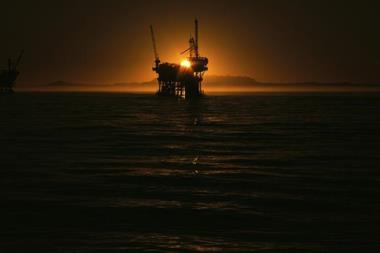A local political risk analyst answers our questions about the Falklands oil situation
As it is still merely confined to nationalistic rhetoric it is still unclear what the latest controversy over drilling in the Falklands actually means in practice for companies with interests in the region, according to Alejandro Chacoff, Americas analyst for Control Risks.
Until it is clear whether there are any commercial finds in the area, no solid conclusions can be drawn, he told StrategicRISK is a written response to our questions.
The possibility of oil companies having their assets seized is highly remote, he said. “This would only happen if the Argentinean government actually decided to intervene where the companies are operating. However, this would be a direct challenge to UK sovereignty and significantly risk confrontation – a cost that we believe the Argentinean government is not willing to entail.”
Chacoff continued: “The only options for the Kirchners would be using tools in their own territory; for example singling out companies that aim to operate on Argentine territory while doing business in the islands or punishing suppliers of machinery and equipment that have a presence inside Argentina but also aim to service UK-based companies in the Falklands. Again, this is all speculative given that there still aren’t any reliable indications of how much oil and of what quality is in the area.”
StrategicRISK asked Chacoff about Argentina’s end game? Are they threatening British sovereignty in the Falklands? Or is this a populist move by the Argentine president and therefore unlikely to be backed up with any military action?
“The possibility of oil companies having their assets seized is highly remote.
Alejandro Chacoff
He said: “Rhetoric on the Falklands was a trademark of former president Néstor Kirchner; Every so often, he would renew claims over sovereignty of the islands in a bid to incite nationalistic sentiment. Despite initial beliefs that Cristina would pursue a more moderate line upon taking over from her husband, she has followed a similar path, voicing Argentina’s sovereignty claims over the islands when it suits her political agenda.
“Although a reawakening of the debate over oil exploration in the area has raised questions over the Argentinean government’s intention, a full-blown escalation of the simmering dispute with the UK is highly unlikely. The government recognises the overwhelming material and political costs that going down such a radical route would entail.
“Moreover, the idea that Argentineans would applaud the government if it sought to push the issue to the brink of confrontation is misleading. Public opinion is significantly in favour of Argentine ownership of the islands, but this does not mean that people crave confrontation with the UK. If anything, the issue is a thorny one. Most of the public associates the issue with the political right; Argentina went to war with the UK over the islands in 1982 mostly because the failing military junta was seeking external scapegoats to counter its dwindling popularity. Rather than acting as an incentive for confrontation, the Kirchners’ mounting problems at home actually serve as a deterrent to any irresponsible adventurism abroad.
“In short, talking up Falklands sovereignty makes sense for the argentine government only up to a point; actually threatening british sovereignty would be too costly while giving the government little political gain.”



















